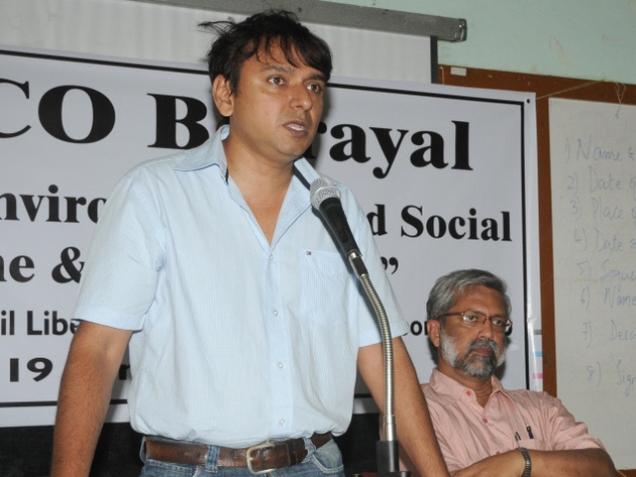Kshitij Urs has spent the past two decades reminding society and the government that water belongs to the people
With rivers dying and lakes becoming bowls of sewage, water is being prophesised as the centre of the next great power struggle.
Amidst grave concerns, Kshitij Urs has spent the past two decades reminding society and the government that water belongs to the people. “Water, to me, has historically been a source of power. Because of this, it is also a source of discrimination. If one were to look at urban deprivation, lack of access to water is as important as food or education,” he said.
Privatisation
The battle for water started in 2004 when he accessed a government agreement with an NGO to “manufacture consent” among the people on water privatisation.
“We realised that this was a new era of public participation where consensus was going to be manufactured. We needed a State-level mobilisation of opinion on the actual impact of the move,” said Mr. Urs who then co-founded the Campaign against Water Privatisation.
Through a sustained campaign that focussed on the commoditisation of water over three years, the State government backed off from the reform. However, the ‘war’ is far from won. “They have tried their hand at Hubbali and Mysuru where opposition to the move resulted in water coming back to the municipality…In Bengaluru, we are seeing privatisation in other forms, such as Unaccounted Flow of Water project, where operations of water supply is being given to private companies,” said Mr. Urs.
Since 2007, the organisation has transformed into People’s Campaign for Right to Water (PCRW), which strives for the protection of water bodies. Their legal action has seen encroachments on Sarakki lake being removed – a development that set off anti-encroachment drives on lakes across the city.
The advocacy by PCRW was also crucial for drafting of the Karnataka Lake Conservation and Development Authority Act, which will see all lakes coming under one body, he said.
Trained as a medical doctor, Mr. Urs’ interest in social justice and deprivation started in 1993 when he met two sisters — one 10 and another 12-year-old — while volunteering at an NGO. “They were diagnosed with HIV. Deprivation had pushed them from a slum in Banashankari to prostitution in Bombay…Nothing in my upbringing had prepared me for this,” he said.
The ‘awakening’ saw him delve into the social sector with a masters in development studies from London followed by a Ph.D from National Law School of India University in the water sector.
Projects working on
Democratisation of water sources
Empowering local communities to raise issues relating to lakes
Following up implementation of Karnataka Lake Conservation and Development Authority Act
Suggestions to government
Understand social conservation of water
Involve local communities in managing water sources
Suggestions to citizens
Understand the importance of traditional wisdom to secure inter-generational rights of water
Demand protection of lakes, tanks
Get involved in policy making
source: http://www.thehindu.com / The Hindu / Home> News> Cities> Bengaluru / by Mohit M. Rao / Bengaluru – October 27th, 2015
